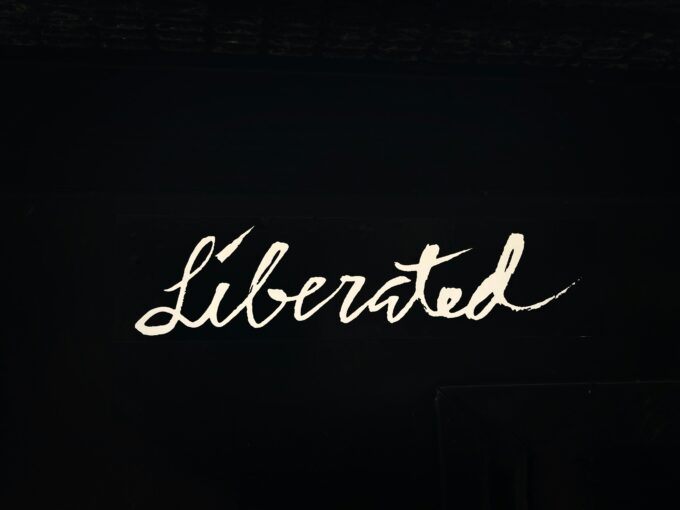
Image by Jon Tyson.
“The words of Ghassan Kanafani are stronger than a desert storm…”–Yunclas
My introduction to the idea that Israel was a colonial nation was when a recently discharged GI who was a member of the Black Panther Party handed me a copy of the pamphlet titled On the Liberation of Palestine. He and I would run into each other in Frankfurt am Main’s Grünenberg Park, which was located within spitting distance of the high school for US military dependents in the section of the city where much of the US military worked and many of its officers lived. I had originally run into the man while hanging out in a part of the park where hippies, freaks, travelers and students hung out playing music, talking, making out and sneaking tokes of hashish while watching out for the cops. One day he and a German woman who was a student at the nearby Goethe Universität got to talking about George Jackson’s assassination a couple days before. The conversation eventually turned to the Black Panthers and their program for social change. Right before I left, the woman handed me a copy of the Black Panther newspaper and suggested I join her and her friend the following week near the chessboard in the park. The meetings became a regular event; every two to three weeks I would meet with one or both of them—usually the ex-GI—and we would discuss imperialism, racism, capitalism and less intensive topics like music and travel.
Anyhow, I took the pamphlet about Palestine and read it through. It was a pamphlet written for the Popular Front for the Liberation of Palestine (PFLP) PFLP: Strategy for the Liberation of Palestine. At the time, the various groups in the Palestinian liberation movement were a jumble of acronyms to me. Over time, I understood each group’s politics in a rather superficial manner. One week the German woman gave me a copy of an article from the New Left Review that was essentially a conversation between Fred Halliday and a Palestinian writer named Ghassan Kanafani. Kanafani, she said, was the guy who had written most of the pamphlet mentioned above. He was a writer of fiction, a member of the PFLP’s leadership and one of its primary propagandists. I looked for his fiction in English-language and German bookstores; none of it had been translated at that time.
Back to the present. Many of Kanafani’s works, both fictional and otherwise, are now available in English, German, and other languages. The PFLP is one of the few remaining secular Palestinian liberation organizations left and the struggle for liberation enjoys more popular support around the world than ever before. Yet, it has also never been in as much danger of destruction as it is today. The Israeli regime, its accomplices and co-conspirators are more murderous than ever and the Palestinian death toll increases by several dozen every day. The frustration is palpable and the death toll is genocidal. The armed Palestinian resistance is led by Hamas, an organization formed by members of the Muslim Brotherhood. It is joined by another religious-based organization Islamic Jihad, the current version of the PFLP, the current version of the Democratic Front for the Liberation of Palestine (DFLP)—which split from the PFLP, and a few other smaller groups. Fatah, which was the dominant group in the PLO, still exist, but primarily in the West Bank. Many of its members work for the Occupation-controlled Palestinian Authority, which essentially places them in Israel’s court.
In late 2024, Pluto Books released a collection of Kanafani’s political writings that included excerpts from the pamphlet mentioned in the first paragraph of this piece. Titled Ghassan Kanafani:Selected Political Writings, the questions asked, the theory presented and the strategies discussed in its pages are both history and current conversation. Indeed, when contemplating some of the works in the text, including the PFLP pamphlet, it becomes clear that the strength of the analysis in the document lies in its relative permanence. In other words, the essential facts of Palestine’s struggle have not changed. Consequently, neither have the essential tasks of the resistance.
Perhaps the crucial element of Kanafani’s and the PFLP’s understanding of the Palestinian struggle against the occupation was that it was and is a class struggle, not ethnic, not religious, and not tribal. Furthermore, it is an anti-imperialist and anti-colonial struggle. Accepting this means that there can be no accommodation with the colonizer regime. The current situation that finds most of the Fatah leadership openly cooperating with the Israeli military and capturing Palestinian militants in the West Bank is a tragic yet ideal example of what this means. So was Yasser Arafat’s accommodation to US-Israeli demands in the Oslo negotiations. Tragically, not only did the agreement reached in Oslo—the so-called Oslo Accords—amount to a gradual surrender of even more land to the occupying state, its architect, Arafat, was besieged and most likely murdered by the Israeli regime less than a decade later. The PFLP and other leftist groups considered Fatah to be the bourgeois nationalists in the fight for Palestinian liberation, while more militant organizations, both secular and religious, came from the streets, the factories, and the fields.
There is a lot of history in this book; also a lot of politics. There’s even some discussion of the uses and nature of language, an article about censorship of textbooks by Zionists (sound familiar?) and an interview that discusses literature, childhood and Marxism. Ghassan Kanafani was assassinated in 1972 by a car bomb planted by Mossad. Much of his fiction has been translated and published in English and other languages, as it continues to sell in the Arabic-speaking world. This all-too-brief collection includes a biographical sketch and most selections are prefaced with reflections on the current situation in Palestine. Ghassan Kanafani:Selected Political Writings is still relevant, reasonable and revolutionary. And more than worthy of one’s time.
The post Ghassan Kanafani: Words of Liberation appeared first on CounterPunch.org.
This post was originally published on CounterPunch.org.